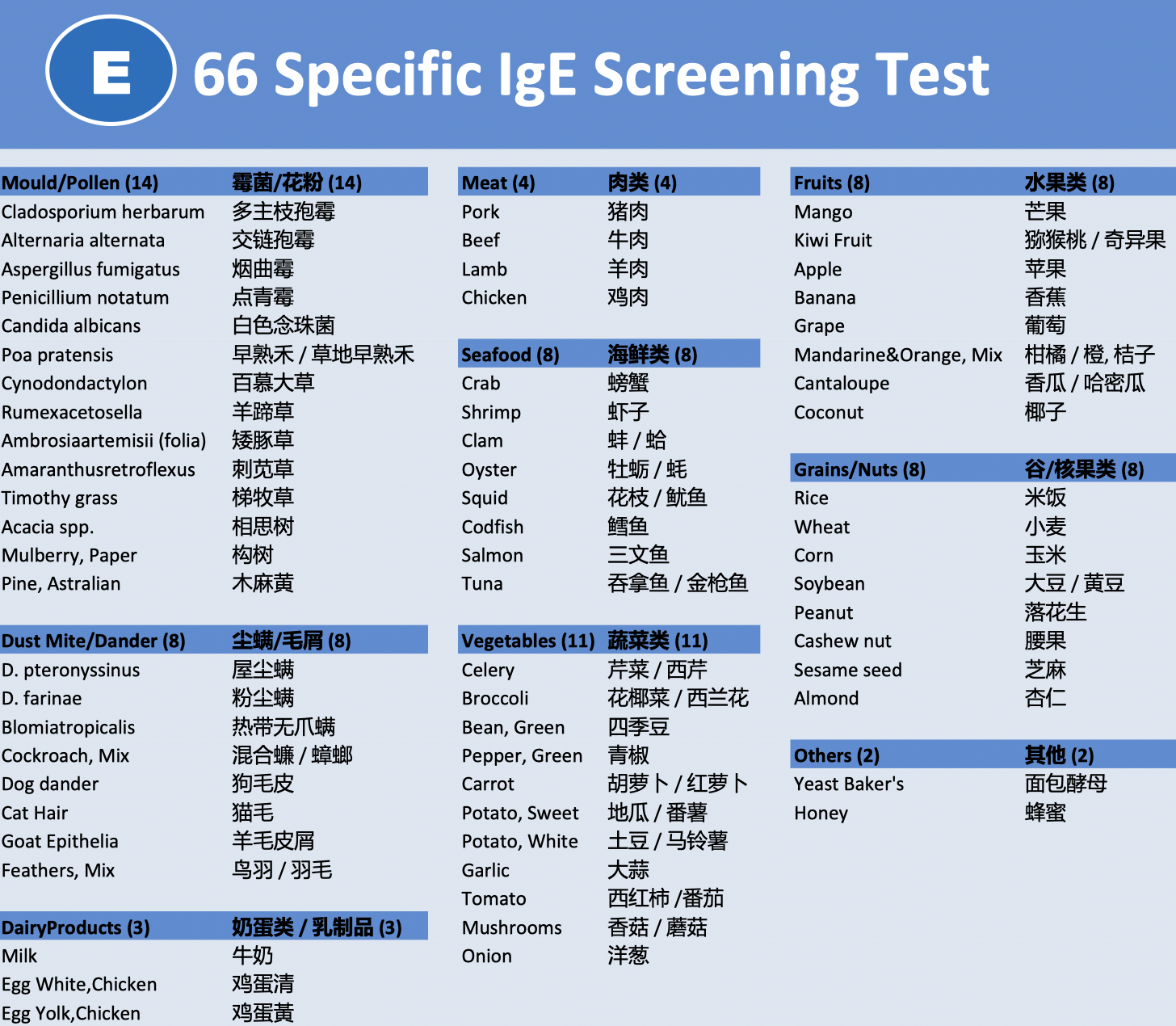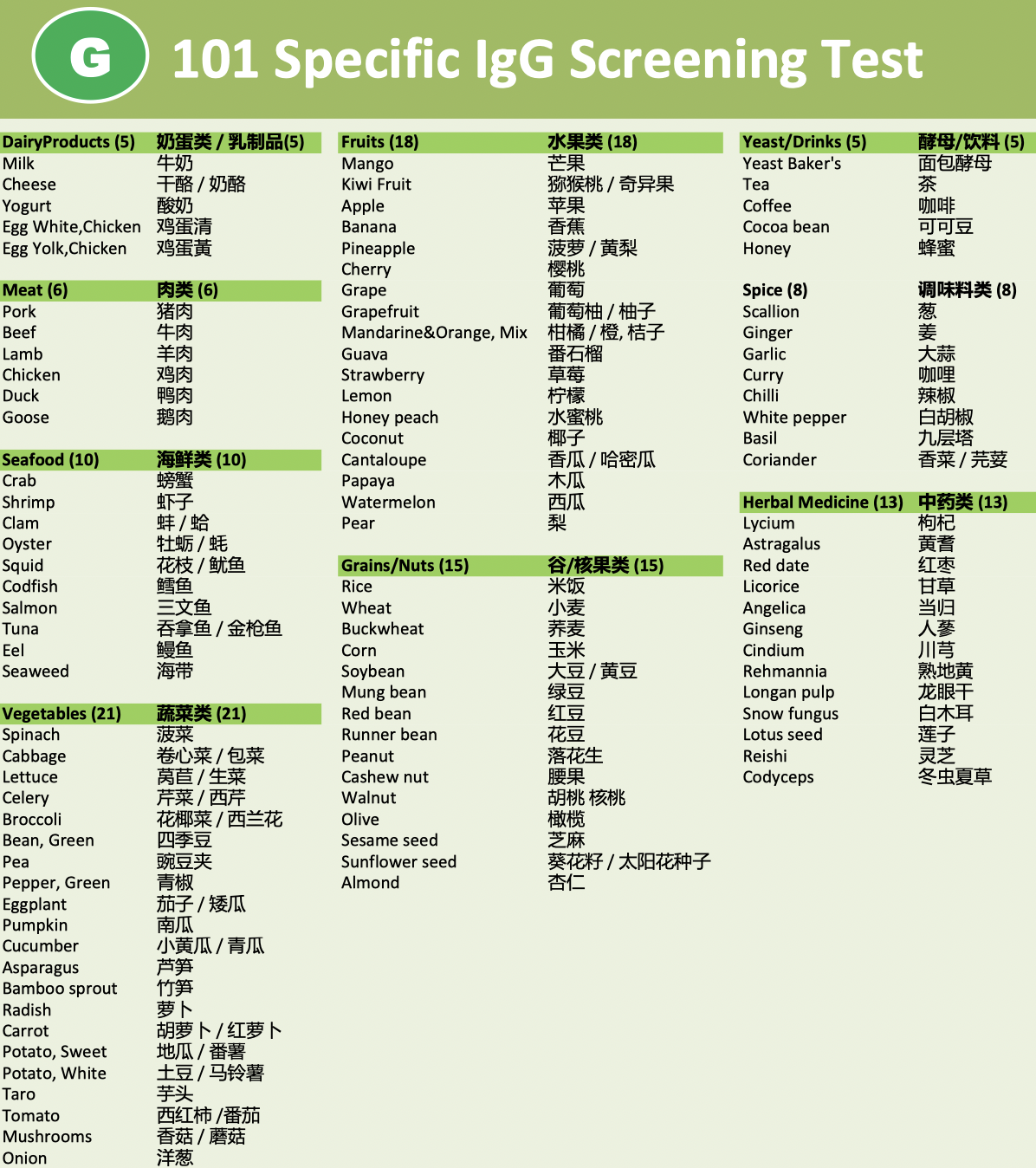Food Allergen Screening Test
Allergies are caused by hypersensitivity to substances present in the environment, called allergens. Normally harmless, allergens trigger mild to life-threatening symptom in people with sensitivities when inhaled or ingested. On the other hand, food intolerance may relate symptoms of many chronic disorders.
A food allergy is a condition that causes your immune system to treat a normally harmless type of food as if was a dangerous virus, bacteria, or other infectious agent. The immune system response to a food allergy ranges from mild rashes to abdominal pain to a life-threatening complication called anaphylactic shock.
Food allergies are more common in children than adults. Many children outgrow their allergies as they get older. Almost 90 percent of all food allergies are caused by the following foods:
- Milk
- Soy
- Wheat
- Eggs
- Tree nuts (including almonds, walnuts, pecans, and cashews)
- Fish
- Shellfish
- Peanuts
For some people, even the tiniest amount of the allergy-causing food can trigger life-threatening symptoms. Of the foods listed above, peanuts, tree nuts, shellfish, and fish usually cause the most serious allergic reactions. Food allergy testing can find out whether you or your child has a food allergy.
Food Allergy (IgE) Versus Food Intolerance (IgG)
There are various reasons why a food can cause problems, among them a classic IgE food allergy (type I) and a delayed IgG food allergy (type III), the latter is also referred to as food intolerance. What both allergies have in common is that the immune system is involved. However, there are some differences in the way it responses.
a) Classic IgE food allergy

A classic type I allergy is when the immune system produces specific IgE antibodies. These antibodies lead to an immediate allergic reaction. The symptoms appear within seconds or minutes: severe swelling, breathing difficulty, rash, itching skin or even anaphylactic shock.
Someone who has a type I allergy will most probably know which food is causing problems, because the symptoms appear right away. IgE tests are mainly performed for confirmation.
b) Delayed IgG food allergy

A type III food allergy is when the immune system produces specific IgG antibodies. These antibodies can lead to inflammatory processes. The symptoms appear from few hours to days after the consumption of a trigger food. Some of the symptoms are constipation, diarrhoea, eczema, flatulence, Irritable Bowel Syndrome (IBS), migraines, obesity, psoriasis.
It is very difficult to pinpoint which food causes you problems because of the delayed appearance. An IgG test helps to localise and limit the suspects. You will only have to avoid foods with elevated IgG antibody values. This means that you can maintain a diverse and varied diet and don’t need to restrict yourself unnecessarily. After a certain period of avoidance, you may reintroduce one food after the other into your diet and monitor your symptoms. This provocation phase is the crucial step to identify your personal “trigger foods”.
Will I need to do anything to prepare for the test?
You don’t need any special preparations for a food allergy test. A simple blood test is required.
video
__________
BOOK YOUR APPOINTMENT
Get your consultation with our team of doctors today!
